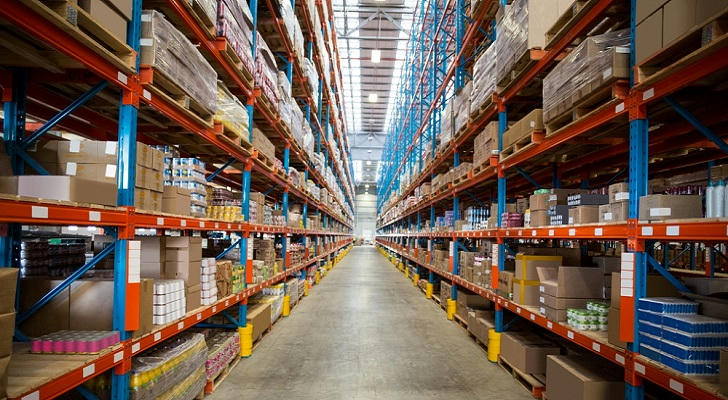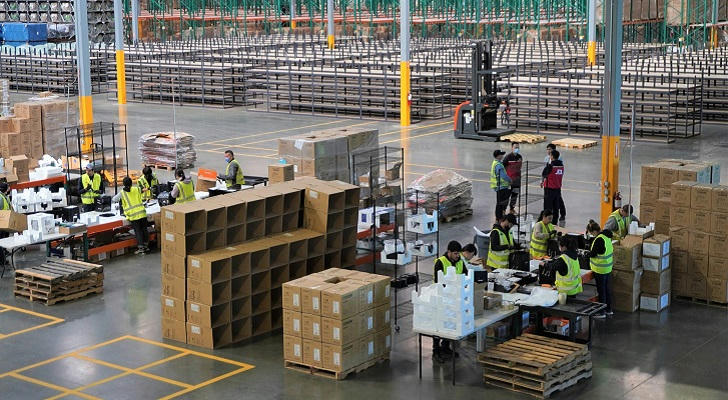From Warehouse to World: A Beginner’s Guide to Careers in Warehouse & Supply Chain Management
Every online order, grocery aisle, hospital delivery, and holiday gift has something in common: it got there thanks to supply chain professionals. At the heart of this massive, often-invisible system lies the work of warehouse and supply chain managers —the people who keep products moving safely, efficiently, and on time.
In a global economy driven by e-commerce, fast delivery, and real-time inventory, warehouse and supply chain roles are more vital than ever. If you're looking for a high-demand field with room to grow, strong career stability, and training options that don’t require a four-year degree, this might be the path for you.

What Is Supply Chain and Warehouse Management?
At its core, supply chain management is the coordination of goods and services from origin to consumption. That includes everything from sourcing raw materials to delivering finished products.
Warehouse management focuses specifically on what happens inside the storage and distribution facilities:
Receiving shipments
Inventory tracking and control
Packing and preparing orders
Quality checks
Ensuring safety and compliance
Managing warehouse layout and logisticsCoordinating with shipping partners
The two areas work hand-in-hand. In today’s fast-paced market, a delay in one warehouse can disrupt an entire supply chain—making efficient coordination essential.
Industry Overview: Growing Demand, Expanding Opportunity
The global supply chain was once something only logistics pros talked about. Then came COVID-19, labor shortages, and shipping bottlenecks. Suddenly, everyone understood just how essential these systems are.
Now, with the growth of e-commerce, AI-powered inventory systems, and globalized trade, the industry is seeing record demand.
Key Facts:
According to the U.S. Bureau of Labor Statistics (BLS), employment for logisticians (those who analyze and coordinate supply chains) is expected to grow 18% from 2022 to 2032—much faster than average.
Warehousing jobs have also expanded: the U.S. added more than 600,000 warehouse jobs between 2019 and 2023 (BLS data).
Third-party logistics (3PL), same-day delivery, and warehouse automation are fueling new job creation and specialization.
Career Options in the Field
You don’t need to be a supply chain executive to start a career in this space. Entry-level and mid-level jobs are everywhere—many with advancement potential after just a year or two of experience.
Here are some common roles:
| Job Title | Responsibilities |
|---|---|
| Warehouse Associate | Pick, pack, and ship items; assist with inventory |
| Forklift Operator | Safely move materials and pallets |
| Inventory Control Specialist | Track and manage stock levels |
| Shipping & Receiving Clerk | Process incoming and outgoing orders |
| Warehouse Supervisor | Oversee team operations and ensure workflow |
| Logistics Coordinator | Manage transportation schedules and vendors |
| Supply Chain Analyst | Optimize processes, reduce costs, forecast demand |
| Procurement Specialist | Order supplies, manage vendor relationships |
Many roles are hands-on, while others involve data, planning, or leadership.

Certifications & Training Programs
No four-year degree? No problem. Many supply chain roles require only a high school diploma or GED and industry certification or vocational training.
Popular Certifications:
| Certification | Issued By | Description |
|---|---|---|
| Certified Logistics Associate (CLA) | Manufacturing Skill Standards Council (MSSC) | Focuses on foundational logistics knowledge |
| Certified Logistics Technician (CLT) | MSSC | Builds on CLA with more advanced supply chain tasks |
| Certified Supply Chain Professional (CSCP) | APICS/ASCM | Recognized industry-wide; ideal for analysts or managers |
| Certified in Logistics, Transportation and Distribution (CLTD) | APICS/ASCM | Specialized in global distribution and warehouse ops |
| Forklift Operator Certification | OSHA-approved providers | Required for many warehouse positions |
| Lean Six Sigma White/Yellow/Green Belt | Multiple providers | Process improvement in logistics and warehousing |
Training Options:
Community Colleges: Many offer certificate or associate programs in supply chain management, warehouse operations, and logistics.
Trade & Technical Schools: Short-term programs (8–16 weeks) are available across the U.S.
Online Platforms:
Coursera: “Supply Chain Management” (Rutgers), “Operations Analytics” (Wharton)
edX: MITx MicroMasters in Supply Chain
LinkedIn Learning: Quick courses in inventory, logistics, and management
Company-Sponsored Training: Many employers like Amazon, Walmart, and FedEx offer on-the-job training and upskilling programs.
Who’s Hiring?
Virtually every industry needs warehouse and logistics staff:
E-commerce giants like Amazon, Target, and Wayfair
Logistics and transportation companies like UPS, DHL, and XPO
Retail and grocery chains like Walmart, Costco, and Kroger
Manufacturers in food, automotive, electronics, and pharmaceuticals
Hospitals, universities, and government contractors
These jobs are available nationwide, with strong growth in distribution-heavy states like Texas, California, Florida, Ohio, and Pennsylvania.
Why This Field Makes Sense Now
Job stability: Goods always need to move, even during recessions.
Multiple entry points: From forklift operator to inventory analyst.
Fast upskilling: Move up with certifications, not costly degrees.
Digital transformation: Learn tools like WMS (Warehouse Management Systems), RFID, and inventory automation.
Room for growth: Go from entry-level to supervisor or planner in under 3 years.

Is This Career Right for You?
Consider warehouse and supply chain management if you:
Enjoy solving problems and staying organized
Want a hands-on job with structure and routine
Like working on teams in fast-paced environments
Are interested in logistics, tech systems, or process improvement
Want career growth without long university commitments
Final Thoughts
The supply chain isn’t just a system—it’s a career superhighway. Whether you start as a warehouse associate or logistics clerk, there are countless paths to grow, lead, and even specialize in global operations. With the right training and curiosity, you can be part of the essential network that keeps America moving.
